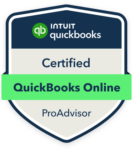The sudden closure of Bench Accounting has left many businesses unsure about their finances. With tax season and year-end tasks around the corner, it’s important to make a smooth bookkeeping transition after Bench Accounting closure.
Are you wondering how to keep your financial records safe and your business running without interruptions? Don’t worry—we’ve broken it down for you.
In this blog, we’ll share five simple steps to help you move forward, that are:
- Download your data before it’s too late.
- Think about what your business needs for bookkeeping now.
- Find a reliable solution that fits your needs.
- Move your records carefully and fix any errors.
- Set up a plan to keep your finances on track in the future.
How can you make sure your next steps actually help your business grow? Keep reading to find out! At LUCI Financial Solutions, we’re here to help small businesses easily manage their finances. Whether it’s guiding you through this transition or helping you build a better financial system, we’re ready to support you.
Let’s dive in and make this change work for your business!
Step 1: Download & Secure Your Bench Data Immediately
Have you downloaded your financial data from Bench yet? With their closure, there’s only a limited time to access your records. Acting quickly is key to avoiding losing critical information for taxes, audits, or strategic planning. This step ensures your bookkeeping after Bench Accounting closure starts on solid ground.
Action Items:
1. Access the Data Portal
Start by logging into Bench’s data retrieval portal (Bench) and downloading your financial records. Make sure to download everything available, as you will not have access to it later.
2. Retrieve Comprehensive Financial Reports
Here’s what to prioritize:
- Income Statements: These show your business’s revenue and expenses. For example, knowing you spent $50,000 on marketing can help plan future budgets.
- Balance Sheets: This snapshot of your assets and liabilities, like $200,000 in accounts receivable, is essential for tracking financial health.
- Cash Flow Statements: Did you know 82% of small business failures are due to cash flow issues? Check our blog on cash flow statements to make sure your records show inflows and outflows accurately.
- Detailed Transaction Histories: These can help resolve disputes or verify payments, ensuring no financial activity is overlooked.
- Tax Documents: From deductible expenses to taxable revenue, these files are critical for filing accurate returns and avoiding penalties.
3. Create Multiple Backups
What if your computer crashes? Protect your data by backing it up in two places:
- Cloud Storage: Services like Google Drive or Dropbox offer secure, encrypted storage. Simply upload your files, organize them by date, and label them clearly for easy access.
- External Hard Drive: Keep an offline copy by transferring your files to an external hard drive. This adds an extra layer of protection against cyberattacks or accidental deletions.
4. Organize Strategically
Label each file by its type and year, such as “2024_Tax_Returns” or “Jan2024_Income_Statement,” to facilitate document retrieval when establishing your new system.
Have you secured your backups yet? This single action can save you hours of stress later. Starting here ensures a smooth transition in bookkeeping after the closure of Bench Accounting, setting the stage for success.
Step 2: Assess & Redefine Your Bookkeeping Requirements
Is your current bookkeeping setup meeting all your business needs? The unexpected closure of Bench Accounting provides an opportunity to re-evaluate your financial management strategy and redefine what works best for you. By assessing your requirements, you can take control and ensure a smoother bookkeeping transition after Bench Accounting closure.
Considerations:
1. Identify Strengths & Weaknesses
Take a moment to think about what worked well with Bench and what didn’t. Did their automated reports help you save time? Were there any issues with customer support delays?
- Strengths: If you appreciate monthly income summaries, look for similar features in your next solution. For instance, Bench’s ability to generate income reports for planning budgets was a significant advantage.
- Weaknesses: On the other hand, many users noted limitations in customization. For instance, if Bench did not track inventory, this could affect businesses managing physical products. Recognizing these gaps enables you to identify the services you need moving forward.
Did you experience any roadblocks with Bench? Reflecting on these points will guide you toward the right solution.
2. Determine Additional Needs
Beyond basic bookkeeping, ask yourself what extra support your business might require:
- Financial Strategy Planning: A comprehensive strategy can increase profitability. For instance, a strategic advisor could identify a pattern in which 60% of expenses are avoidable.
- Tax Advisory: Avoid penalties by planning. For example, accurate deductions could save you thousands during tax season.
- Payroll Management: Growing teams often need efficient payroll processing. If you struggled to calculate overtime for employees, now’s the time to fix that.
- Inventory Tracking: Effective inventory management is essential for businesses dealing with physical products. For example, being aware that you have $20,000 worth of unsold inventory can help avoid over-ordering.
3. Outcome
Defining your bookkeeping needs creates clarity and helps you choose a solution that aligns with your goals. For small businesses, expert advice can truly be a game-changer. Did you know that 59% of small business owners say having a financial advisor improved their success rate?
Expert bookkeepers not only simplify financial tasks but also offer insights to grow your business. With their support, you can handle challenges and focus on scaling your operations.
How can you redefine your bookkeeping to work better for your business? Stay with us to find out how the next steps can transform your bookkeeping after Bench Accounting closure into an opportunity for growth.
Step 3: Explore & Select a Suitable Bookkeeping Solution
Are you wondering which bookkeeping solution is the best fit for your business? Now that you know your needs, it’s time to explore options that align with your goals and business model. Finding the right solution ensures a seamless bookkeeping transition after Bench Accounting closure and sets your business up for success.
Options – Accounting Software
If you prefer managing your books independently, these accounting tools stand out:
~ QuickBooks Online
- Pros: Comprehensive features like expense tracking, invoicing, and financial reporting.
- Cons: Can be overwhelming for beginners due to its complexity.
- Stat: Trusted by over 7 million small businesses worldwide for its reliability and scalability.
- Why It’s Best: Ideal for growing businesses that need advanced reporting and integrations.
~ Xero
- Pros: Easy-to-use interface with robust payroll and invoicing tools.
- Cons: Limited customer support and fewer integrations compared to QuickBooks.
- Stat: Rated 4.4/5 on G2 for user-friendliness.
- Why It’s Best: Perfect for startups and small businesses looking for simplicity and value.
~ Zoho Books
- Pros: Affordable, with automation features for recurring invoices and workflows.
- Cons: Limited third-party integrations.
- Stat: Saves businesses 20+ hours per month through automation (Zoho).
- Why It’s Best: A budget-friendly option with impressive automation for small businesses.
Outsourced Bookkeeping Services
If managing software feels like too much, consider outsourcing:
~ Dedicated Bookkeepers: Provide personalized attention and can adapt to your specific needs. For instance, they can offer insights into tax savings and handle daily tasks efficiently.
~ Specialized Firms: Offer a range of services, from financial analysis to strategic planning. They’re great for businesses seeking for expert guidance and proactive advice.
Considerations
- Shopify or Salesforce: It should fit into your workflow without causing extra hassle.
- Scalability: As your business grows, the solution should handle more transactions and extra features without breaking a sweat.
- Support & Training: Pick a service or platform that offers clear guidance and support, so you can get started without feeling overwhelmed.
Recommendation
At LUCI Financial Solutions, we simplify bookkeeping for small businesses. We handle the hard parts so you can focus on running and growing your business. Have you decided on the right solution yet?
Check this blog on the best cloud-based accounting software. Moreover, Stick with us to learn how to move forward with confidence and turn this bookkeeping transition after Bench Accounting closure into a fresh start!
Step 4: Migrate and Reconcile Your Financial Data
Are you worried about moving your financial records correctly? Accurate data transfer is key to keeping your business on track. A smooth migration ensures that your bookkeeping stays organized and reliable after the Bench Accounting closure. Let’s break it down step by step.
1. Data Importation
Start by uploading your old financial records into your new bookkeeping system. Most software like QuickBooks Online or Xero has tools to make this easy. Here’s how:
QuickBooks Online:
- Go to Settings > Tools > Import Data.
- Upload your files (like .CSV or .XLS formats).
- Match file columns to the software fields (e.g., “Date” in your file matches “Transaction Date”).
Xero:
- Open Accounting > Bank Accounts > Import a Statement.
- Choose your file and map it to the right fields.
Getting the details right avoids confusion. For example, putting “Office Rent” under “Miscellaneous Expenses” could mess up your reports later.
2. Transaction Reconciliation
How do you know your data is correct? Compare your imported records with your bank statements:
- Bank Statements: Download your bank records to cross-check.
- Match Transactions: Ensure every payment, deposit, or charge in your software matches your bank records.
Example: If your bank lists a $200 payment for utilities but it’s absent in your software, you’ll need to add it. Additionally, eliminate any duplicates, such as two entries for the same $50 purchase. Reconcile your data monthly to identify issues early. Regular checks help you stay proactive and avoid larger problems later.
3. Data Validation
Before wrapping up, make sure everything is correct:
- Review Entries: Double-check amounts, categories, and dates.
- Fix Mistakes: If you find errors, like $500 recorded as income instead of a refund, update it immediately.
Why seek assistance? A professional bookkeeper can quickly identify and correct errors, sparing you from potential headaches. What’s the next step? With your data securely migrated and verified, you can concentrate on the future. This ensures that your bookkeeping after the closure of Bench Accounting is positioned for long-term success.
Step 5: Develop a Comprehensive Financial Strategy
Have you considered what will happen after you re-establish your bookkeeping? Getting your records back on track is just the beginning. A strong financial strategy ensures your business grows and stays prepared for the future. This is the perfect opportunity to strengthen your bookkeeping after the Bench Accounting closure and take control of your finances.
Components
1. Profitability Analysis
Do you know which parts of your business are the most profitable? Reviewing your financial statements regularly helps you understand your profit margins.
Let’s say your revenue is $100,000, but your profit margin is only 15% after $85,000 in expenses. By analyzing these numbers, you might find that reducing a $10,000 annual marketing expense with low ROI could boost profits.
High costs, such as excessive inventory or underpriced services, are frequent culprits. Identifying these can enhance profitability.
2. Cash Flow Management
Are you monitoring where your money goes each month? Cash flow is the lifeblood of your business, and effectively managing it ensures you remain liquid.
If your monthly revenue is $20,000 and your outflows—such as rent ($5,000), salaries ($8,000), and utilities ($2,000)—total $15,000, you will have $5,000 remaining in net cash flow. Maintaining this positive balance prevents disruptions.
Set aside 10% of revenue for unexpected expenses and use budgeting tools to forecast future needs.
3. Tax Planning
No one likes surprises during tax season. Staying informed about deadlines and rules can save you from hefty penalties. You can read this blog to learn about basic tax tips & strategies.
Missing a tax payment can result in fines of 5% of unpaid taxes each month, limited to a maximum of 25%. For a $10,000 tax bill, that amounts to $500 in penalties monthly. Keep in mind that a tax professional can uncover deductions that save you thousands each year, such as home office expenses or vehicle usage.
4. Financial Forecasting
Forecasting helps you prepare for the future by generating projections of your financial performance. This could take the form of a graph or chart that displays anticipated revenue, expenses, and profits over months or years. For instance, a forecast indicating a $50,000 revenue increase in six months might support the decision to hire two new employees.
How LUCI Financial Solution Supports
At LUCI Financial Solutions, we’re more than bookkeepers—we’re your financial partners. We’ll guide you through creating a strategy that keeps your business thriving.
Ready to take control of your future? Let’s turn your bookkeeping after Bench Accounting closure into a fresh start for growth and success.
Conclusion
The closure of Bench Accounting might feel like a setback, but it’s also a chance to improve your financial management. By following these steps, you can ensure a smooth bookkeeping transition after Bench Accounting closure and set up a system that truly supports your business.
At LUCI Financial Solutions, we’re here to make the process stress-free. From transitioning your data to building a strong financial strategy, we provide tailored solutions for small businesses.
Let’s Get Connected!
What’s your next move? Let’s work together to create a reliable bookkeeping system that helps your business grow.
Reach out today and take the first step toward a smarter, more efficient financial future!










